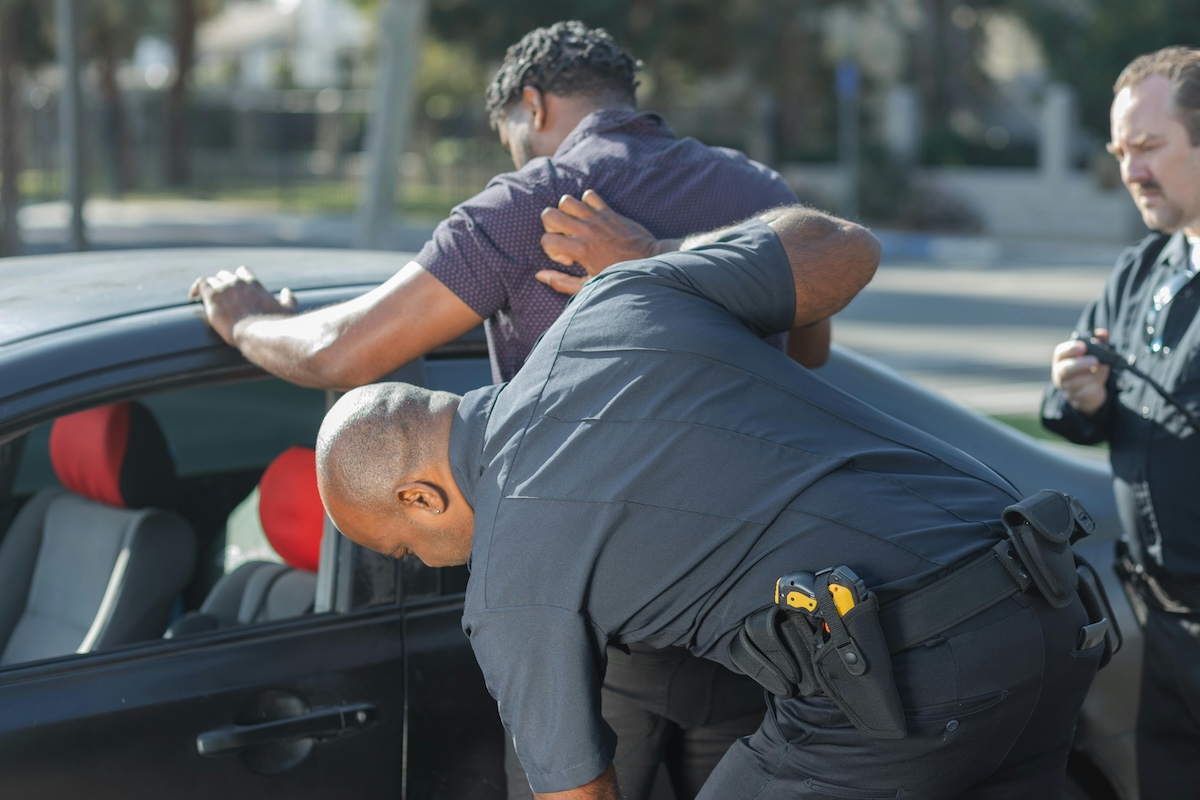Built on Trust, Focused on Results










Denver Criminal & DUI Defense – Personally Handled, Courtroom-Tested
At the Law Office of Monte J. Robbins, Esq., Denver DUI Defense Lawyer Monte Robbins brings over 20 years of courtroom experience to defending people charged with DUI, drug offenses, and serious traffic-related crimes across Colorado. Unlike large firms that hand cases off to junior associates, Monte handles every case personally — from the first phone call to the final outcome.
Whether you’re facing a first-time DUI, felony DUI, drug offense, habitual traffic-offender charge, or a license-revocation hearing, we provide aggressive, strategic defense designed to protect your freedom and your future.
Monte focuses on serious and high-impact cases — including felony DUI, vehicular assault, drug-related driving offenses, and criminal-traffic charges that carry long-term consequences. His clients include professionals, commercial drivers, and repeat offenders who need experienced, strategic representation.
With a reputation for courtroom results, clear communication, and personal attention, Monte fights to secure the best possible outcome in every case — no matter how complex or contested.
DUI Defense in Colorado
If you’ve been arrested for DUI in Colorado, Denver DUI Defense Lawyer Monte Robbins can help you navigate both the criminal case and the DMV hearing. The consequences of a DUI can be serious and far-reaching — including jail time, license suspension, mandatory education or treatment, and a permanent criminal record.
Monte personally handles every DUI case from start to finish — no handoffs to junior associates. Whether you’re facing a first-time DUI, prior convictions, or a felony-level DUI involving an accident or injury, we deliver aggressive, strategic defense focused on protecting your record, your freedom, and your future.
Don’t wait. After a DUI arrest in Colorado, you only have 7 days to request a DMV hearing or your license may be automatically revoked. DUI cases involve both a criminal court proceeding and a separate administrative license hearing — and early intervention can make a major difference in the outcome of both.
DWAI Defense in Colorado — Because Even a “Slight” Impairment Can Wreck Your Record
A DWAI (Driving While Ability Impaired) may sound minor — but make no mistake: Colorado law treats it as a serious criminal offense. You can be charged with DWAI even if your BAC is below 0.08. All it takes is a slight degree of alleged impairment from alcohol, drugs, or both. That means good people — with no criminal record and no bad intent — often find themselves in the crosshairs after having “just a couple” or using medication legally prescribed to them.
DWAI convictions carry real consequences: jail time, fines, points against your license, higher insurance premiums, and a permanent criminal record. And because these charges are based on vague and subjective standards, they can often be challenged — with the right defense.
If you’ve been charged with DWAI in Colorado, don’t assume it’s just a slap on the wrist. Call Denver DUI Defense Lawyer Monte Robbins for experienced, strategic defense that’s designed to protect your future — and fight back against charges that never should’ve been filed in the first place.
Criminal Defense in Colorado — Strategic Help When You Need It Most
Being charged with a crime can feel overwhelming — and for good reason. Your job, your record, your driver’s license, your future — everything can be impacted by a single accusation. At the Law Office of Monte J. Robbins, Esq., Denver DUI Defense Lawyer and criminal defense attorney Monte Robbins provides steady, experienced guidance to help you make smart decisions and protect your rights every step of the way.
With over 20 years of experience, Monte has helped clients across Colorado navigate charges ranging from drug possession and felony DUI to license-based crimes and serious misdemeanors. He handles every case personally — no handoffs, no junior associates — and tailors your defense to your goals, whether that means negotiation, dismissal, or a courtroom fight.
If you’re under investigation or already facing charges, don’t go it alone. The sooner you have trusted legal representation, the better your chances of protecting what matters most. Call now to talk confidentially about your options and next steps.
Felony DUI & Traffic-Related Crimes — Strategic Defense with Real-World Experience
Not all felonies involve violence — but they can still turn your life upside down. In Colorado, charges like felony DUI, vehicular assault, or felony drug offenses can carry years in prison, long-term license revocation, and permanent damage to your record.
At the Law Office of Monte J. Robbins, Esq., we focus on defending people charged with serious, traffic-related felony offenses — including:
- Felony DUI (typically after multiple prior convictions)
- Vehicular assault (DUI or reckless driving causing injury)
- Vehicular homicide
- Felony drug offenses
- Felony eluding
- Felony DUI with an accident
With over 20 years in Colorado courts defending real people against real consequences, Denver DUI Defense Lawyer Monte Robbins builds smart, aggressive strategies to protect your freedom and your record.
Drug Crimes & Controlled Substances Defense
Drug cases in Colorado range from misdemeanor possession to complex felony distribution. A conviction can affect your record, your license, and your future. As a Denver DUI Defense Lawyer with extensive experience in drug-related cases, Monte Robbins defends clients accused of:
- Possession of a controlled substance
- Possession with intent to distribute
- Prescription-drug offenses
- Drugged driving (DUID)
- Search-and-seizure violations
Monte combines detailed legal analysis with real-world experience to challenge unlawful searches, flawed testing, and weak evidence.
Traffic Offenses & License-Based Crimes
Not all traffic offenses are created equal — and some carry life-changing consequences. Hit-and-run charges, careless driving causing injury or death, and Colorado’s enhanced vulnerable-road-user law can all trigger serious criminal penalties, DMV sanctions, and even felony charges.
These cases demand focused, strategic defense. Yet many attorneys avoid them — either because they don’t fully understand the criminal-traffic crossover or because they underestimate the damage these charges can cause to someone’s future.
With 20+ years in Colorado courts defending real people against real consequences, Denver DUI Defense Lawyer Monte Robbins has built a niche practice around traffic-related criminal cases that others overlook — or mishandle. He understands that in Colorado, losing your license can mean losing your livelihood.
Colorado Department of Revenue (DMV) Hearings
DMV hearings aren’t just about points and paperwork — they can determine whether you keep your license or lose your freedom. And very few attorneys know how to handle them correctly.
With over 20 years in Colorado courts and administrative hearings, Denver DUI Defense Lawyer Monte Robbins represents clients in a range of Department of Revenue (DMV) actions, including:
- Express Consent Revocation Hearings (DUI-related license revocations)
- Ignition Interlock Violation & Extension Hearings
- Point Suspension Hearings
- Interstate Licensing Problems
- Automobile Salesperson License Hearings
In a state like Colorado, where limited public transportation makes a car essential, a license suspension isn’t just an inconvenience — it can cost you your job, your independence, and your ability to care for your family.
Juvenile & Under-21 Offenses — Protecting Futures, Not Just Cases
Young drivers make mistakes — sometimes big ones — and Colorado law doesn’t give them much room for error. A single charge like Minor in Possession (MIP), Under-21 DUI or DWAI, or high-speed reckless driving can leave a lasting mark on their record and jeopardize school, scholarships, and future opportunities.
I defend juvenile and under-21 clients in Denver and across Colorado facing:
- Under-21 DUI or DWAI (“baby DUI”) charges
- Minor in Possession of alcohol or marijuana
- Drag racing or speed-contest violations
- Reckless or careless driving at high speeds
- Hit-and-run and leaving-the-scene offenses
- Driving without a valid license or permit
Juvenile and young-adult cases require a different kind of defense — one that focuses on minimizing long-term consequences while addressing the court’s concerns about responsibility and rehabilitation.
Whether your child was stopped for speeding down I-25, cited for MIP at a college party, or charged after a late-night speed contest, I work to keep the situation from defining their future. These cases deserve real strategy, not scare tactics — and I personally guide every family through each step of the process.
You Deserve a Dedicated Advocate — Not a Dabbler
Whether you’re facing a criminal charge, a traffic offense, or a license suspension, you’re not just another case file — I understand what’s on the line: your license, your job, your reputation, your freedom.
For over two decades, Denver DUI Defense Lawyer Monte Robbins has personally handled every case that comes through his office. No handoffs to junior associates, no dabbling in unrelated areas of law — just focused, experienced defense for real people facing real consequences.
When we work together, you get straight talk, responsive service, and a clear legal strategy tailored to your situation. If you’re looking for a Denver DUI Defense Lawyer who actually shows up for you — at the DMV hearing, in court, and every step in between — let’s talk.
📞 Call 303-355-5148 or contact Monte Robbins online to get started
Criminal Defense Articles & FAQs
Client Reviews
An excellent lawyer choice for my son who was charged with driving while his license was revoked. DMV had mistakenly sent (3) letters of revocation to the incorrect address, so I hired Monty to prove that my son never knew his license was revoked. Monty kept me informed at all times as to what was...
I consulted three other attorneys on my traffic offense in Colorado and none of them thought I could beat it. Then I consulted with Monte Robbins. He not only relieved my warrant without my presence in Colorado, but he got my habitual driving offense reduced to an infraction. I was up against the...
I hired Monte J. Robbins to represent me. He gave 110% to my case never rushed me off the phone, quick to gather all information regarding my case. Monte is very knowledgeable and helped me out a lot. He kept me informed every step of the way through my case. I was always able to get a hold of him...
Contact Us
- 1 Talk to a Lawyer - Not a Case Manager
- 2 Get an Honest Assessment of Your Case
- 3 Know Your Next Best Step Before You Hang Up








